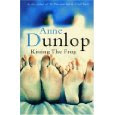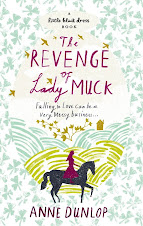
A MOST LAMENTABLE COMEDY
Janet Mullany
It was the proudest day of my literary career when I discovered my novel The Pineapple Tart on a list on Amazon entitled ‘pure escapism’; rubbing shoulders with Nancy Mitford, Winifred Watson, EF Benson and Georgette Heyer. I had already read Nancy, Winifred and Fred, but I’d never read any Georgette; unfairly I’d dismissed her Regency romances as a bit too saccharine for my taste.
How mistaken I was! For the woman is a genius! She cannot write a boring sentence. She’s as witty, sly and ironic as the reigning queen of romance, Jane Austen, and just like Jane her stories are set among the wealthy upper classes during the Regency period, when ‘a large income is the best recipe for happiness I have ever heard of’ (Mansfield Park, 1814).
A Most Lamentable Comedy follows in the romantic traditions of Georgette Heyer and also of Jane Austen. It’s set in Regency times and is full of exquisite, meticulously researched details about the fashions, the food, the forms of address and the acceptable codes of behaviour of that era.
But, and here’s the interesting part, because A Most Lamentable Comedy is a contemporary novel, Janet Mullany has added her own 21st Century spin to the story.
It’s 1822. Artful Lady Caroline Elmsworth is having a run of bad luck. She’s only twenty three and already widowed twice. Her good reputation is in shreds; she is pursued by her creditors. She’s hiding out at a big house in the country, taking part in farcical amateur dramatics; hoping to soon ensnare another rich stupid husband. Instead she meets and is immediately attracted to gorgeous Nicholas Cosgreavance, recently returned from the Continent. Cosgreavance is also down on his luck; he’s seeking a rich silly widow to exploit. Very soon the pair are furiously flirting. This is how Nicholas tells it –
I prepare to brush my lips against hers in moderately chaste fashion...
She is the first to disengage. “Do you usually kiss ladies for a quarter-hour at a time?” she asks.
“Do you usually time such activities?” I respond.
And from here we relax into a delicious, high spirited romance as roguish Caroline and black sheep Nicholas fall hopelessly in love with each other. It’s hopeless because they’re both penniless and in Regency times there were no government handouts or youth training schemes, or student loans to assist with third level education. There was only the debtor’s prison for Caroline and the unsavory job of male gigolo for Nicholas. Fortunately for the young lovers, Nicholas is the estranged half brother of a Duke and the Duke is thoroughly decent chap...
So in the best traditions of romantic literature - everyone lives happily ever after.
Janet Mullany is originally from England but now lives in America. She has worked as an archaeologist, a performing arts administrator, classical music radio announcer and editor for a small press. Her inspiration for A Most Lamentable Comedy came when she was rereading Our Mutual Friend by Dickens, which has two minor characters, Alfred and Sophronia Lammle, who marry and then find out neither has any money.
*
VERDICT: Georgette Heyer once said: “I think myself I ought to be shot for writing such nonsense... But it’s unquestionably good escapist literature and I think I should rather like it if I were sitting in an air-raid shelter or recovering from flu.”
Well, touch wood, I’m rarely ill, and I’ve never sat in an air-raid shelter but I’ve spent many hours trapped in Economy class, flying longhaul, and I can vouch for ability of a witty, well written Regency romance to transport the reader far away from the discomforts of modern reality.








Very flattering to be compared to Austen and Heyer--thanks for the review and I'm thrilled you liked the book.
ReplyDeleteJanet
I've never read Georgette Heyer, although i seem to be in the minority, thanks for the tip, i'll have to get down to waterstones.
ReplyDeleteI couldn't have got through the first five years of motherhood without Georgette Heyer
ReplyDelete